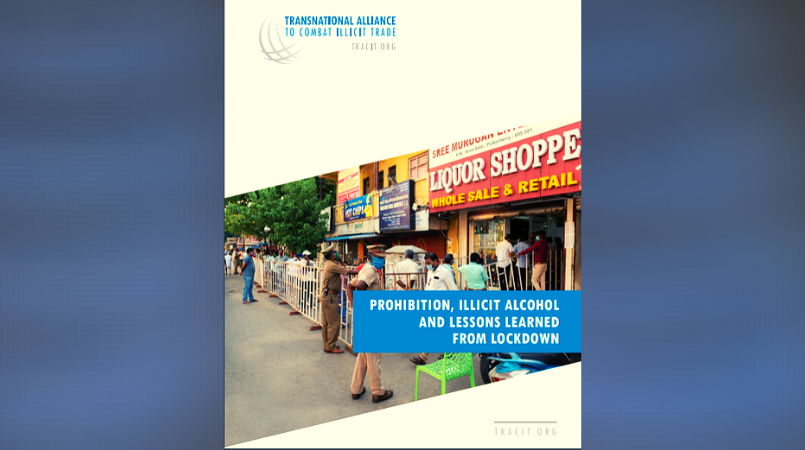
Crisis-driven COVID-19-related prohibitions on alcoholic beverages have driven growth in illicit trade and triggered serious negative health risks to consumers.
This warning was issued today (January 12th) in a new report by the Transnational Alliance to Combat Illicit Trade (TRACIT).
Titled Prohibition, Illicit Alcohol and Lessons Learned from Lockdown, the TRACIT report takes a look at the effects of heavy-handed supply restrictions during the early stages of the COVID-19 outbreak. The report draws on findings from 23 countries to present a set of lessons learned from the imposition of government restrictions on alcohol.
In some countries, the bans were nationwide, while they were more limited in geography or timing of availability in others. For example, Greenland announced a ban on alcohol in the capital city of Nuuk, but in Mexico, all breweries were closed for over a month, except for exports.
“Although the origin, jurisdiction and duration of the bans differed widely, a commonality could always be found in the side effects of the bans, beyond public health objectives,” said TRACIT Director-General Jeffrey Hardy.
The report shows that the negative socioeconomic consequences associated with these well-intentioned but misconceived policies generated four important lessons. It shows that alcohol prohibition policies:
- Incentivise illicit markets and criminal activity;
- Expose consumers to health risks;
- Reduce tax collections and constrain budgets; and
- Sideline legitimate businesses and depress formal job opportunities.
“Determining whether or not dry laws were effective in addressing the pandemic has not been our objective,” explained Hardy. “We concentrated on what could be learned from the experiences during the pandemic and how we could better shape future policymaking at the intersection of alcohol regulation, illicit trade and public welfare.”
Among the key findings is that criminals and unscrupulous illicit traders rapidly entered these markets to fill gaps left by government-imposed supply shortages. These findings were substantiated by recent research from Euromonitor International, which shows a 9.7 percent increase in illicit alcohol in Latin America during the pandemic. Prohibitions and other forms of restrictions to legal alcohol served as one of the main drivers of the increased illicit activity.
The TRACIT report also provides somber statistics from around the world on the collective harm, serious injury, and over 1,000 reported deaths associated with the consumption of illicit beverages, either as a substitute for legal ones or as a perceived remedy to COVID-19.
“Perhaps the most alarming consequence of alcohol prohibition measures was the jump in consumer exposure to health risks associated with toxic illicit alternatives,” said Hardy.
In the face of the ongoing health pandemic, the report recommends that governments:
- Avoid prohibition laws as emergency response measures to protect people from the spread of the virus. The benefits of these are conjectural, while the negative consequences are many and run counterproductive to interdependent health, employment, and economic objectives.
- Ensure availability and access to legitimate products that conform with social-distancing objectives without inducing demand for illicit substitutes.
- Avoid the imposition of “emergency tax” increases on alcohol. A quick-fix approach could end up being as reckless as the imposition of prohibition laws, resulting in lower consumption of legal beverages, smaller pools of tax collections, and an increase in demand for untaxed and cheaper illicit alternatives.
- Ramp up implementation of enforcement measures to ensure that illicit trade activities caused by the pandemic do not become permanent features of the post-pandemic economy.
“As governments move from crisis management to recovery planning, the findings from this evidence-based report suggest that they must pay close attention to ensure illicit trade activities caused by the pandemic do not become permanent features of the post-pandemic economy,” concluded Hardy.
